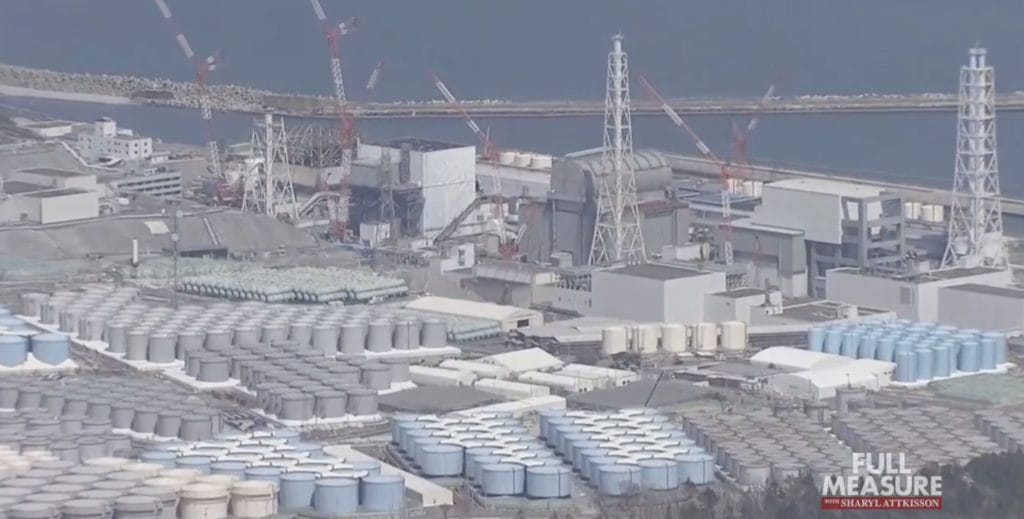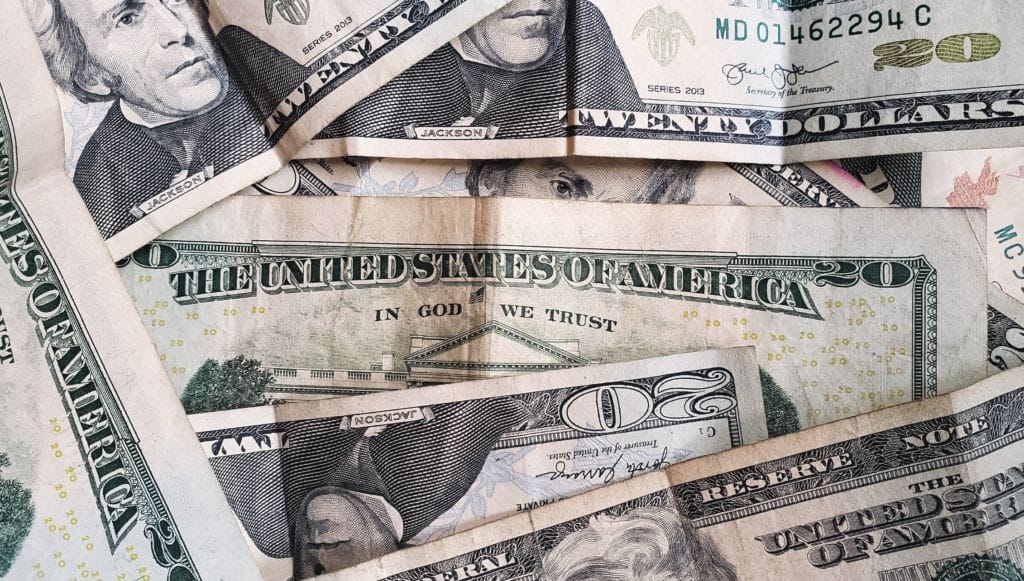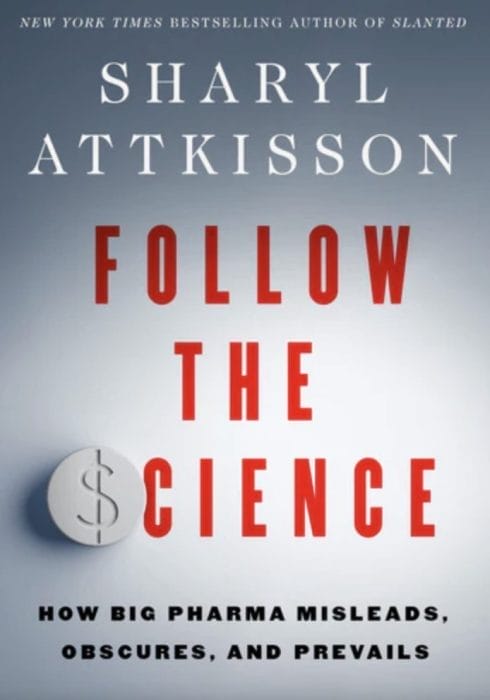(Original airdate Jan. 16)
Ten years ago, the nuclear accident at a power plant in Fukushima, Japan became the second worst nuclear accident in the world, following the Chernobyl, Soviet Union disaster of 1986. The radiation release forced a mass evacuation and sent radioactivity as far as the west coast of the U.S. Lisa Fletcher unearths surprising information about what could be a new release of radioactivity from Fukushima.
The following is a transcript of a report from “Full Measure with Sharyl Attkisson.” Watch the video by clicking the link at the end of the page.
On March 11, 2011, an earthquake off Japan’s coast triggered a tsunami. A wall of water estimated to be 45-48 feet. It overwhelmed the seawall separating the nuclear plant from the ocean. After the quake, the nuclear reactors shut down and the plant went to emergency power from diesel generators to keep pumps running to cool the reactor cores. But seawater flooded the emergency backups, cooling stopped, and three nuclear meltdowns followed. The release of radiation from the meltdown forced the evacuation of more than 150,000people, and there was no controlling the release of radioactivity into the ocean.
Lisa: And were your worst fears confirmed?
Ken Buesseler: We were getting reports back from Japan the first weeks or so about cesium, a radioactive form of cesium. You could not eat the fish from that whole coastline of Japan because the levels were too high or considered unfit for human consumption.
Ken Buesseler is a scientist at the Woods Hole Oceanographic Institution. He studies radioactive materials in the ocean.
Buesseler: So, in terms of health effects and things, we didn’t expect them to be as severe as we got across the Pacific, but they’re measurable. So, people were asking us on the west coast two or three years later, you know, should I be concerned? I surf every day. Can I eat the seafood?
But that is where the conversation took an abrupt turn. It would seem like there might be some part of the U.S. government that would take an active role in finding out how a radioactive wave arriving from Japan might impact U.S. citizens on the coast. Guess again.
Buesseler: What was there, and kind of an interesting side story is we couldn’t get supported for this by any federal agencies in the U.S. They don’t really support ocean radioactivity research. So, we started crowdfunding.
Yes. You heard that correctly. Crowdfunding essential science to see if years of radiation migrating since the Fukushima disaster was going to impact the fish, the ocean, and the people on the west coast.
Buesseler: We basically told people, “Come to us and we can tell you how to collect the sample.”
So, what did the data of the citizen scientists discover? While there was measurable radiation, it did not present a danger for swimming or surfing. The exposure would be less than a thousand times smaller than a single dental x-ray.
But there is a new danger: 300 million gallons of radioactive water that could be released any day with no notice. And Buesseler says there’s little that can be done to stop it.
Buesseler: They say, oh, don’t worry about it. We can release it safely, but hidden behind that, are scores of other contaminants that are much more dangerous.
And even with that release imminent, measuring the impact will still be at the hands of citizen scientists.
Buesseler: We shouldn’t have to rely on citizen scientists and volunteers to make these kinds of key measurements.
Japan announced they would release the 300 million gallons of radioactive water last spring, but they did not set any particular date, or even if they would publicly announce when the wastewater would flow into the ocean. For Full Measure, I’m Lisa Fletcher.




As if we didn’t have enough to worry about with Doofus in the White House.
Yes, absolutely. Adding another brick to the wall of this cluster to the world wide situation were are all living in. Not at all being helped by the Brandons of the world.
Given how they messed up many other things, I’m good with citizen scientists. That is how it used to be.
Arne, I agree. I would take the advice and help of an ordinary American over ANY American government official/worker/aide….